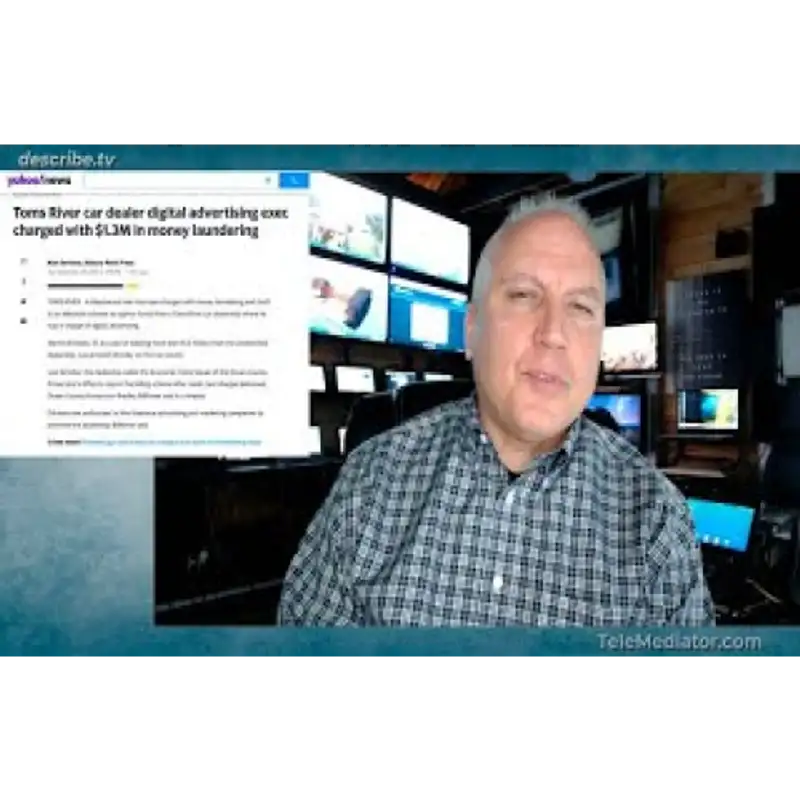How Online Scams Fuel Conflict: Navigating the Impact on Trust and Society
Download MP3Many times, the reason that a conflict exists is because of some type of scam or fraud. Frauds take many forms. Sometimes it's a scam online, sometimes it's a Ponzi scheme, and sometimes it's corporate fraud or embezzlement. We'll talk about a couple of them, including scams involving fake law enforcement calls, fake Bitcoin investments, and this one here—a case of an employee at a car dealership who embezzled 1.3 million dollars from their employer.
What this person did was create fake companies and implement a billing scheme. This person worked for the company as a freelance advertising and marketing agent. They were tasked with advertising for the dealership, but instead, they created a bunch of fake companies. They submitted invoices claiming these companies did work for the dealership, leading the employer to pay over a million dollars to these fake entities. Come to find out, these weren't even real companies—they were owned by the fraudster as shell companies, pretending to be legitimate advertising and marketing firms. The money ultimately went to this employee.
Another form of fraud is when you're approached by someone who claims to have an investment opportunity. A lot of times, this occurs online through Instagram, dating sites, or employment platforms. You'll get a message out of the blue that says, "Hey, I just made all this money on this investment!" Sometimes, on a dating site, it'll be someone you're conversing with who casually drops into the conversation, "Hey, congratulate me! I just made a lot of money and now I'm going on vacation, bought a new car, or going out to celebrate."
They'll show pictures on social media of luxury vacations, new cars, or fancy dinners with champagne bottles. This tactic is designed to get you, the person they're talking to, to ask, "How did you make this money?" They’ll then claim they invested in Bitcoin, bonds, or something similar, doubling their money in just two weeks. Once they have your interest, they'll send you a link and say, "This is where I put my money."
You trust them because you think you're in a relationship or friendship with this person, and they seem to have proven their success through social media pictures. But guess what? It’s all a scam. The person you're talking to isn't who you think they are. They’ve used fake photos of vacations, rented cars, or staged their posts to fake their lifestyle. You send them money—$10,000, $15,000, $30,000—as an investment. But they won’t stop there.
Once you send $20,000 or $30,000, they’ll say, “Look, your account is now worth $75,000. You’ve more than doubled your money! If you get it to $100,000, it’ll double automatically because of a bonus.” Encouraged, you send them another $25,000, and they show you a statement indicating your account is now worth $200,000. You feel like you've struck gold!
But the moment you try to withdraw some money, they’ll hit you with new fees. “You need to pay taxes,” they’ll say. “Send us $20,000 to process your withdrawal.” Then it’s an audit fee or another excuse, and they keep asking for more money. They’ll keep this up until you either realize it’s a scam, get angry, or run out of money.
Another type of scam involves phone calls from people claiming to be in positions of authority—like police officers, IRS tax auditors, or other officials. They’ll say, “You’re in big trouble. We have a warrant for your arrest,” or, “Your file has been flagged for an audit or prosecution.” Sometimes, they’ll claim a relative has been arrested and needs bail money.
These scammers often know some details about you, such as your address or job, which they might gather from LinkedIn or social media. They use this information to make their story more convincing and manipulate you into paying fines or sending money.
We see hundreds of victims of these scams every week. If you’ve had this type of experience, share your story below. Let us know how you were scammed and what kind of conflict it created for you, your family, or your company.

